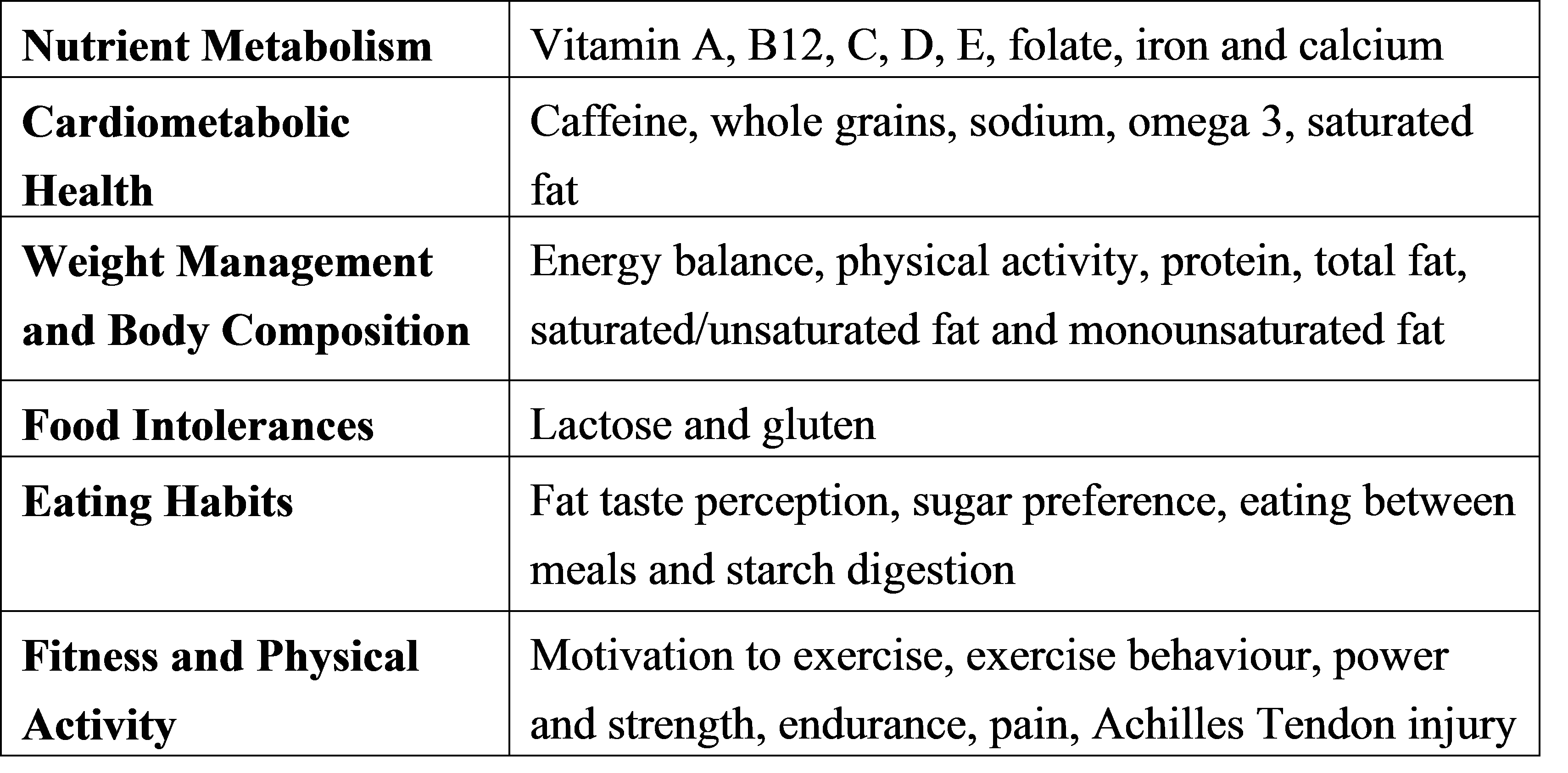Nutrigenomix – A Look at the New Test
Those of you familiar with Revive may know that we have offered Nutrigenomix testing for a few years now. Nutrigenomics is the study of how our genes can influence our body’s response to what we eat and how the food we consume affects our genes. With over 25,000 individual genes it’s no wonder food can affect us all so differently.
Understanding your genetic makeup can help us determine what recommendations to make for your optimal health. When the first Nutrigenomix test came out in 2012, it only tested 7 genetic markers. Fortunately, research related to nutrigenomics has expanded significantly over the past few years and now the Nutrigenomix test looks at 45 genetic markers impacting weight management and body composition, nutrient metabolism, food intolerances, eating habits, heart health and physical activity.
I thought I would share my results so you can see how useful this test can be for providing you with personalized nutrition recommendations. Below are the six different categories of testing and the dietary and physical activity components included in each section. I have provided a detailed explanation of my results following this table.
Nutrigenomix: My Results

In the Nutrient Metabolism section my results showed an elevated risk factor for low levels of vitamin D, calcium and iron. I do find this interesting as I often find myself craving red meat, liver and dark, leafy greens such as spinach and kale, which are all good sources of iron. I know when my body is telling me to eat more iron, and I’ll happily increase my iron intake. Knowing that I have a genetically higher requirement for calcium and vitamin D makes me more diligent with my vitamin D supplements (even in the summer) and making sure I get enough calcium through food in my diet.
In the Cardiometabolic Health section, caffeine and sodium both showed elevated risk for heart attack (based on caffeine intake) and high blood pressure (based on caffeine and sodium intake), which I found interesting as I have low blood pressure and my doctor is often suggesting more salt. Since physical activity can lower blood pressure, and since I am an active individual, this probably explains my low blood pressure. I am a heavy sweater and tend to lose a lot of fluids and salt, so I aim for 1500 mg of sodium a day, as per my Nutrigenomix report, and more on days when I exercise. As for caffeine, I stick to my one large cup of coffee per day and use decaffeinated if I really need another cup.
In the Weight Management and Body Composition section, my gene variation showed an enhanced weight loss response to physical activity, protein and saturated fat. In the last few years I have become more aware of how critical physical activity is for me to maintain a healthy weight. The test also revealed that I should aim for 30-60 minutes per day of moderate to vigorous cardiovascular activities with interval training six days a week and strength training at least two days per week. This may explain why I found that CrossFit works so well to improve my body composition.
In regards to protein, I often feel best if 30% of my calories come from lean protein, which is right in the middle of the 25-35% recommended by my Nutrigenomix test. The test results again reinforced dietary and exercise changes I have made that make me feel like the best version of me. Knowing my genes would have been easier than years of journaling and reflection on both my diet and training!
For the Food Intolerances section my results came back as elevated risk for lactose intolerance, which makes sense as I naturally shy away from milk. Coupled with the importance of dietary calcium to decrease my risk of bone fractures, this makes me more aware that I need to get calcium from non-dairy sources. My Nutrigenomix results came back as medium-risk for gluten intolerance. This also makes sense as I do well with three to four servings of gluten per week; any more and my cravings go up and I feel like I’m in a fog.
For the Eating Habits section, my Nutrigenomix test revealed that I have an elevated ability to taste fatty food, which may be the reason I tend to use minimal amounts of fats in cooking and instead add fats in the ways I enjoy them such as with nuts, seeds or avocado.
Overall I found the new Nutrigenomix 45-Gene Health and Wellness test extremely helpful. If anything, it reinforced some of the dietary and exercise changes I have already made in my life and highlighted the importance of making new changes.
Learn more about this service and how to get your very own test!

